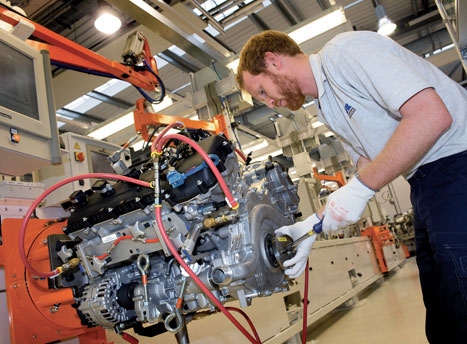
The report, developed by SMMT Industry Forum for the Automotive Industrial Partnership, surveyed British-based automotive firms to identify the areas of employment most difficult to recruit, and provide the means for industry and government to tackle the skills issue. Just under a fifth (19%) of unfilled vacancies cited in the report are identified as ‘critical’ and having a significant impact on company operations.
Automotive companies are struggling to fill a range of engineering positions, with roles for design and production engineers being particularly difficult to fill. Consequently, companies are hiring temporary contractors and increasingly recruiting from abroad.
For vehicle production, 2015 was the best year in a decade with 1.59 million vehicles built, and volumes are forecast to reach an all-time record two million by 2020. The UK also achieved notable success in productivity levels, which have increased 40% since 2010 to make UK labour productivity the highest in Europe.
According to the report, this success could be undermined by the lack of skilled engineers to fill new jobs, despite efforts made by companies to increase training and apprenticeships.
“The automotive industry has already invested heavily in apprenticeships and training for existing staff to grow and develop a new generation of skilled workers,” said Mike Hawes, SMMT chief executive. “However, even more support is needed. The struggle to fill vacancies is holding back growth and opportunities for business, and it is essential that both government and industry work together quickly to identify ways to plug this gap. Future schemes must focus on quality not just quantity – and more support is needed to promote STEM subjects in schools.”
In addition to the new personnel needed, there are also many new training requirements due to the adoption of new automotive technologies in the industry. According to the report, 71 different types of learning are required for more than 20,000 people working in the industry – 15% of whom have an immediate need for new training. The most critical training requirements are in lean manufacturing, advanced problem solving and tool making.





Swiss geoengineering start-up targets methane removal
No mention whatsoever about the effect of increased methane levels/iron chloride in the ocean on the pH and chemical properties of the ocean - are we...